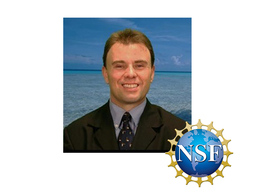CBEE Seminar: Karl Rockne, Program Director NSF-CBET-EE
Grand Challenges for Environmental Eng. in the 21st Century
Location
Technology Research Center (TRC) : 206
Date & Time
April 22, 2019, 12:00 pm – 2:00 pm
Description
Please join us for the lunch reception at 12 noon and the following seminar (1:10 pm)
TITLE:
Grand Challenges for Environmental Engineering in the 21st Century
SPEAKER:
Karl J. Rockne (krockne@nsf.gov) (National Science Foundation, Alexandria, VA USA)
ABSTRACT:
The National Academies of Science, Engineering, and Medicine (NASEM) released their study on the Grand Challenges for Environmental Engineering in the 21st Century in December 2018. The study was the result of over two years of work and meetings across the country convened by NASEM, informed by three previous meetings on this topic by the Association of Environmental Engineering and Science Professors (AEESP). The study identifies five grand challenges that environmental engineers can play a role in addressing: sustainably supplying food, water, and energy; curbing climate change and mitigating its impacts; building a future without pollution and waste; designing efficient, healthy, and resilient cities; and fostering informed decisions.
The study makes clear that environmental engineering professional practice, education, and research require an evolution to create the engineers capable of tackling these grand challenges. Specific suggestions are made in the study, including a focus on the need for systems thinking, increased training in data analytics, attracting a more diverse pool of talent, and greater inter-disciplinary practice, training, and research.
This presentation will focus on how we got here and how we can move forward, starting with a brief history of the profession. The five grand challenges and various initiatives and programs at the National Science Foundation (NSF) that address these challenges will be discussed. Finally, I hope to stimulate discussion on the need to evolve research, education, and the profession; what I am calling the “6th Grand Challenge”. An aspirational view is that successfully evolving will be transformative; with new employment opportunities as the profession transitions from a focus on waste cleanup to one deeply intertwined in health care, product development, agriculture, power generation and transmission, urban planning, and myriad other fields.
BIOGRAPHY
Karl Rockne, Ph.D., P.E., BCEE
Director, Environmental Engineering Program
Division of Chemical, Bioengineering, Environmental and Transport Processes
National Science Foundation
Dr. Rockne received his BS and MS degrees in environmental engineering from the University of Minnesota and his PhD in environmental engineering from the University of Washington. He was a post-doctoral researcher in chemical engineering at Rutgers University and a Professor and former Department Head at the University of Illinois at Chicago Department of Civil and Materials Engineering.
He has been awarded numerous teaching and research awards, starting with the National Science Foundation’s CAREER young investigator award for his research on “active capping” technology for contaminated sediment remediation. He has published over 100 scientific articles in the fields of pollutant fate, dental materials, environmental forensics, microbial ecology, bioremediation, and sediment treatment funded by grants totaling $15M.
He currently manages an $80M research portfolio of >250 projects as Director of the Environmental Engineering program at the National Science Foundation. Dr. Rockne serves on numerous working groups and convenes panels at NSF to expand funding opportunities for the Environmental Engineering and Science (EES) communities. These include Mid-Scale Research Infrastructure (MS-RI T1 and T2), Navigating the New Arctic, Signals in The Soil (SiTS), HBCU Excellence in Research (EiR), and Gen 4 Engineering Research Center solicitations. He also represents the EES community in advisory and administrative roles on numerous governmental scientific committees, including the Action Collaborative for Disaster Research on the National Academy of Sciences, vice chair of the Intergovernmental Collaborative for Environmental Monitoring and Modeling (ICEMM), and the Arctic/polar science, emerging pollutants, and Water availability and quality subcommittees for the National Science and Technology Council (NSTC) reporting to the White House Office of Science and Technology Policy (OSTP).
